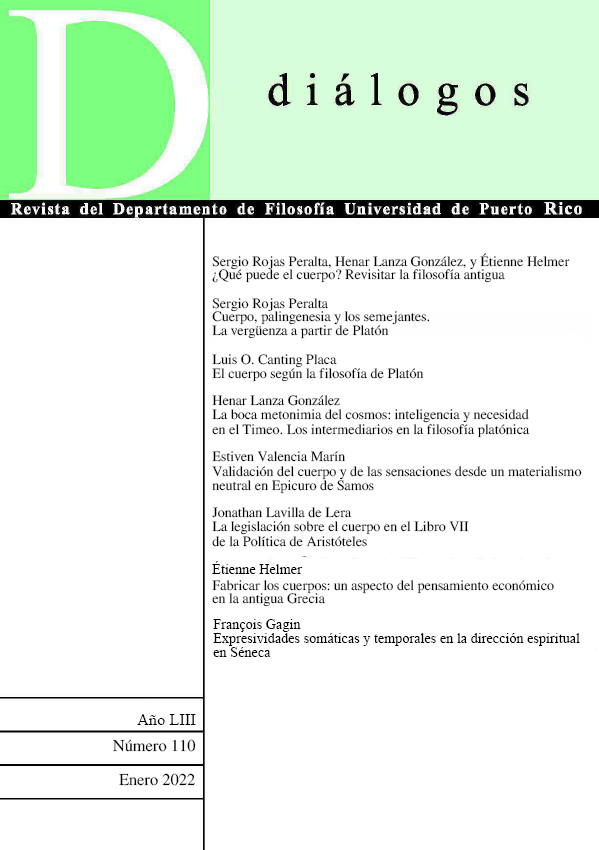Abstract
An interest in the vital problems of the human being led Epicurus to distance himself from the theorizations and dedicate himself to thinking maxims by which the man could get hold of objects of well-being. Epicurus assumes the body and sensitive life as principles of a well-being that rests on the affections (πάθη), although these are effects of the stimuli of the environment, in addition to being sources of the attitudes of acceptance or rejection that determine actions. Is true that sensualist perspective describes εὐδαιμονία as the satisfaction of desires and daily needs, but it becomes clear that desires do not always coincide with the interest of well-being and can contradict this end. This paper scrutinizes the arguments that validate body and senses to know the world and act according
to what is perceived in the face of some skeptical and plutarchian criticisms.

This work is licensed under a Creative Commons Attribution-NonCommercial 4.0 International License.

